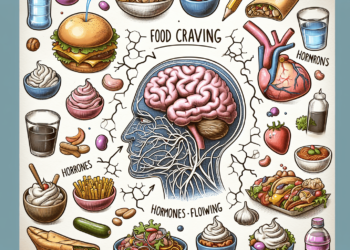Do you ever find yourself wondering, “What is the daily limit for chocolate?” We all love indulging in this delightful treat, but it’s hard to resist the nagging question of how much is too much. In this article, we’ll explore the answer to this confectionery conundrum, uncovering the surprising truth behind the recommended daily intake of chocolate. So grab a chocolate bar and join us on this sweet journey of discovery.
Health Benefits of Chocolate
Potential cardiovascular benefits
Did you know that chocolate, especially dark chocolate, could potentially provide some cardiovascular benefits? Studies have shown that the consumption of dark chocolate, in moderation, may help improve heart health. The flavonoids present in chocolate may have a positive impact on blood pressure and reduce the risk of heart disease. However, it is important to note that these benefits are seen with moderate consumption and in the context of an overall healthy lifestyle.
Improved mood and brain function
Indulging in a delicious piece of chocolate can bring a smile to your face, but did you know that it may also have an impact on your mood and brain function? Chocolate contains various compounds that can stimulate the release of endorphins, the feel-good hormones in our brains. Additionally, the caffeine and theobromine found in chocolate can provide a gentle energy boost and enhance cognitive functions such as focus and attention.
Rich source of antioxidants
Antioxidants are incredible substances that help protect our bodies from the damage caused by free radicals. Chocolate, especially dark chocolate, is rich in antioxidants, such as flavonoids and polyphenols. These antioxidants can help neutralize the harmful effects of free radicals and reduce oxidative stress in our bodies. Incorporating a moderate amount of chocolate into your diet can be a tasty way to boost your antioxidant intake.
Recommended Daily Limit
Varies based on individual factors
The daily limit for chocolate consumption varies from person to person based on various factors. Factors such as age, overall health, and activity level can influence how much chocolate one should consume in a day. It’s important to remember that moderation is key, and it is recommended to consult with a healthcare professional to determine a suitable daily limit for your specific circumstances.
General recommendations
As a general guideline, many health experts suggest that consuming around 1 to 2 ounces (28 to 56 grams) of chocolate per day can be a reasonable and enjoyable amount. However, it is crucial to consider the overall balance of your diet and not rely solely on chocolate for your nutritional needs.
Considerations for children and pregnant women
Children and pregnant women have special dietary considerations when it comes to chocolate consumption. For children, it’s important to monitor their intake of chocolate to avoid excessive sugar and calorie intake. As for pregnant women, it is advisable to consult with a healthcare professional, as some studies suggest that high levels of chocolate consumption during pregnancy may be associated with an increased risk of certain health conditions.

Factors Influencing Daily Limit
Age
Age plays a significant role in determining the daily limit for chocolate consumption. Children have different nutritional needs compared to adults, and their intake of chocolate should be monitored to ensure they receive a balanced diet. As we age, our metabolism and overall health needs change, and it’s essential to adjust our chocolate intake accordingly.
Overall health
Individuals with certain health conditions, such as diabetes or heart disease, may have to limit their chocolate consumption more strictly. It’s important to consider any pre-existing health conditions and consult with a healthcare professional for personalized advice.
Activity level
Another factor to consider when determining your daily limit for chocolate is your activity level. If you lead an active lifestyle and engage in regular exercise, you may have a higher daily limit for chocolate consumption compared to someone who is more sedentary. Physical activity can help offset the potential negative impacts of chocolate consumption.
Effects of Excessive Chocolate Consumption
Weight gain
Indulging in too much chocolate can contribute to weight gain. This is primarily due to its high sugar and calorie content. While chocolate can be enjoyed as part of a balanced diet, excessive consumption can lead to an imbalance in calories, potentially resulting in unwanted weight gain. It’s important to be mindful of portion sizes and consider the overall caloric content of your diet when consuming chocolate.
Risk of dental problems
Chocolate, particularly the sugary varieties, can pose a risk to dental health. The sugars present in chocolate can feed harmful bacteria in the mouth, leading to tooth decay and cavities. It is recommended to practice good oral hygiene by brushing and flossing regularly, and to enjoy chocolate in moderation as part of a well-rounded diet.
Gastrointestinal issues
Overindulging in chocolate can also lead to gastrointestinal issues such as stomachaches, bloating, and diarrhea. Some individuals may be more sensitive to the stimulants present in chocolate, such as caffeine and theobromine, which can cause these unpleasant symptoms. Pay attention to how your body reacts to chocolate and adjust your consumption accordingly.

Key Nutrients in Chocolate
Cocoa content
The cocoa content in chocolate is an important factor to consider when evaluating its nutritional profile. Dark chocolate, with a higher percentage of cocoa, generally contains more fiber, iron, and magnesium compared to milk chocolate. Higher cocoa content also means a higher concentration of antioxidants, providing more potential health benefits.
Fiber
Chocolate, especially dark chocolate, can be a surprising source of dietary fiber. Fiber is crucial for maintaining a healthy digestive system and promoting feelings of fullness. Including chocolate with a higher cocoa content in your diet can contribute to your daily fiber intake.
Iron and magnesium
Dark chocolate is also a notable source of iron and magnesium. Iron is essential for the production of healthy red blood cells and the transportation of oxygen throughout the body. Magnesium plays a vital role in numerous bodily functions, including muscle and nerve function. Enjoying dark chocolate in moderation can be a delicious way to incorporate these beneficial nutrients into your diet.
Dark Chocolate vs. Milk Chocolate
Differences in nutritional profile
When comparing dark chocolate to milk chocolate, there are distinct differences in their nutritional profiles. Dark chocolate, with its higher cocoa content, typically contains less sugar and more fiber, iron, and magnesium. On the other hand, milk chocolate tends to have more sugar and a creamier texture due to the addition of milk solids. It’s important to consider these differences when choosing between the two.
Caffeine content
Dark chocolate generally contains a small amount of caffeine, whereas milk chocolate typically has even less or none at all. If you are sensitive to caffeine or try to limit your intake, choosing milk chocolate may be a better option for you.
Sugar content
One of the main differences between dark chocolate and milk chocolate is the sugar content. Dark chocolate tends to have less sugar, making it a better choice for those looking to reduce their sugar intake. However, it’s still important to enjoy both types of chocolate in moderation, as they both contain calories and sugar.
Tips for Moderating Chocolate Intake
Read labels and choose high-quality chocolate
When it comes to chocolate, quality matters. Reading labels and choosing high-quality chocolate can make a significant difference in terms of taste and potential health benefits. Look for chocolate with a higher cocoa content, minimal added sugars, and fewer artificial additives.
Control portion sizes
Controlling portion sizes is essential when enjoying chocolate. It’s easy to get carried away, but indulging in too much chocolate can lead to negative health effects. Stick to the recommended daily limit, and consider breaking your chocolate bars into smaller pieces to help manage portion sizes.
Incorporate it into a balanced diet
Chocolate can be part of a balanced diet when enjoyed in moderation. Make sure to include a variety of other nutritious foods such as fruits, vegetables, whole grains, lean proteins, and healthy fats in your meals. This way, you can indulge in chocolate guilt-free while still maintaining a well-rounded and nutritious diet.
Alternatives to Satisfy Cravings
Fruit-based desserts
If you’re craving something sweet, consider opting for fruit-based desserts. Fresh berries, sliced apples, or a medley of tropical fruits can provide a natural sweetness and a plethora of vitamins and minerals. Pair them with a small piece of chocolate for a delightful combination of flavors.
Nuts and seeds
Nuts and seeds make for a satisfying and nutrient-dense alternative to chocolate. They offer healthy fats, fiber, and essential nutrients. Enjoy a handful of almonds, walnuts, or pumpkin seeds for a crunchy and fulfilling snack that can help curb your cravings.
Natural sweeteners
Instead of reaching for a chocolate bar, experiment with natural sweeteners to satisfy your sweet tooth. Date paste, honey, or pure maple syrup can be used to sweeten homemade desserts or even as a drizzle over plain yogurt. These natural alternatives provide additional nutrients and can be a healthier option compared to processed sugars.
Individual Sensitivity to Chocolate
Allergies and intolerances
While chocolate is a beloved treat for many, some individuals may have allergies or intolerances to its ingredients. Common allergens in chocolate include milk, nuts, and soy. If you experience symptoms such as itching, swelling, or difficulty breathing after consuming chocolate, it may be indicative of an allergic reaction. In such cases, it is important to avoid chocolate and seek medical advice.
Effects on sleep and energy levels
Chocolate contains stimulants such as caffeine and theobromine, which can have an impact on sleep patterns and energy levels. Some individuals may find that eating chocolate too close to bedtime can interfere with their ability to fall asleep or stay asleep. Pay attention to your body’s reaction to chocolate and adjust your consumption accordingly to ensure a restful night’s sleep.
Psychological factors
For some, chocolate holds an emotional or psychological connection. It may be associated with comfort, nostalgia, or stress relief. While enjoying chocolate in moderation can be a pleasurable experience, it’s important to also explore alternative coping mechanisms and find healthy ways to address emotional needs.
Consulting with a Healthcare Professional
Seeking personalized advice
If you have specific health concerns, dietary restrictions, or questions about your chocolate consumption, it is advisable to consult with a healthcare professional. They can provide personalized advice based on your unique circumstances and help you establish a suitable daily limit for chocolate.
Identifying potential risks or benefits
Healthcare professionals can help identify any potential risks or benefits associated with your chocolate consumption based on your medical history and current health status. They can guide you in making informed decisions and help you weigh the pros and cons of including chocolate in your diet.
Establishing a suitable daily limit
Working with a healthcare professional can be instrumental in establishing a suitable daily limit for your chocolate consumption. They can take into account factors such as your age, overall health, activity level, and personal preferences to help you strike a balance between enjoying chocolate and maintaining optimal health.
In conclusion, chocolate can be a delectable treat that offers various health benefits when consumed in moderation. The potential cardiovascular benefits, improved mood and brain function, and the rich source of antioxidants make chocolate an appealing choice. However, it’s crucial to be mindful of the recommended daily limit, taking into account individual factors such as age, overall health, and activity level. Excessive consumption of chocolate can lead to weight gain, dental problems, and gastrointestinal issues, so moderation is key. Understanding the key nutrients in chocolate, the differences between dark and milk chocolate, and tips for moderating intake can help you make informed choices. If you have specific concerns or need personalized advice, consulting with a healthcare professional can provide valuable guidance. So go ahead and enjoy chocolate, but remember to savor it in moderation within the bounds of a balanced and healthy lifestyle.




